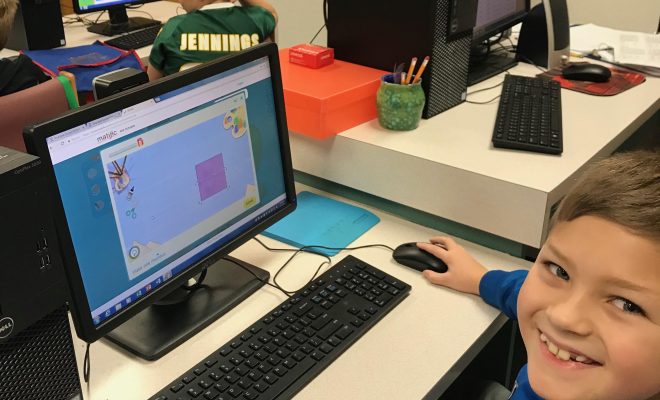First 2,000 Days of a Child’s Life

**The Edvocate is pleased to publish guest posts as way to fuel important conversations surrounding P-20 education in America. The opinions contained within guest posts are those of the authors and do not necessarily reflect the official opinion of The Edvocate or Dr. Matthew Lynch.**
A guest post by Chad G. Malcolm, Ed.D.
When you look back on your life, what have you accomplished in the last 2,000 days? For many of us, it is staggering to see where we used to be five years ago. Five years ago, I was finalizing my doctoral dissertation, deciding to relocate to Miami, Florida, and trying to be the best teacher I could be for my 20 Head Start students. How about you?
The first 2,000 days of a child’s life, the amount of time that spans from birth to the first day of Kindergarten, are some of the most formative years they will go through. During these 2,000 days, brain architecture is forming and creating a foundation for all future learning. The environment, experiences, and relationships a child has will lead to a strong or weak foundation. As I teach in all my Early Childhood Education (ECE) teacher preparation classes, a strong foundation in early childhood will set students up for success for many years to come. When building a skyscraper, the foundation is the key to the entire project. ECE bases everything we do with and for children on the premise that brains are built, not born. At birth, the brain is one of the only organs not fully developed. Most of the cells are in existence, however, the connections (the wiring) that forms the architecture is not yet developed. Every experience a baby goes through forms a neural connection in the brain. Synapses, the neural connections, form very rapidly in the earliest years, many at a rate of 700 synapses per second. The graph below shows the peaks in these connections for three different brain functions: 1) Sensory Pathways, 2) Language, and 3) Higher Cognitive Functions.
As depicted in the graph, it is clear to see the sensory pathways spike to their peak in the first months after birth. The baby is gathering information every second, creating those 700 synapses. They are seeing, hearing, tasting, touching, and smelling things for the first time. As these new experiences happen, the baby is connecting them in the brain. Language, which peaks second, occurs at about 9 months. This is when the baby is cooing, babbling, and starting to create small words. The synapses for the sensory pathways are giving the baby the experiences, and the connections, to begin to form sounds and simple words. Finally, the higher cognitive functions peak closer to 1-2 years of age. This is when most ECE programs start informal instruction of colors, shapes, counting, numbers, and letters. The new information is being connected to old, forming even more synapses.
So what does this all mean to parents and the ECE teacher? Parents are a child’s first teacher. The start for a child, as you can see from the graph, is crucial. Many researchers encourage constantly talking when you are interacting around a newborn baby. Communication, in fact, starts from birth with crying, eye contact, and listening. When a parent talks and communicates with a baby, the baby develops language. The more talking a parent does, the more language development happens. It does not have to be directly talking to the baby. Simply sharing the steps on how the parent is doing laundry, cleaning, or cooking dinner will help the baby’s brain to create more connections. As the baby grows, continue to talk with him or her, pointing out shapes or colors as you walk around the house or drive in the car. The more genuine the conversation, the more language development and relationship building occur.
The ECE teacher needs to develop an environment conducive to learning and exploration. By providing a safe and nurturing environment, children are more apt to take risks in learning. ECE teachers are the first formal teacher with which a child interacts. These first interactions (even at the youngest age) can sour a child on schooling. The classroom needs to be fun, engaging, and educationally focused. Children should be challenged to think, problem solve, and negotiate situations. Learning academically should be occurring. However, it should not be in a threatening, rote memorization manner. Letters should be introduced in addition to numbers, counting, patterning, sorting, colors, and shapes. These can all be introduced through games, art experiences, children’s books, nature, and most importantly in play.
The first 2,000 days of a child’s life are the most formative, and should not be taken lightly by parents or ECE teachers. If a child is to be successful in the future, a solid foundation needs to be built. That foundation is constructed from day one. By creating an environment at home and in school that promotes sensory pathways, language development, and higher cognitive functions children will be set with a foundation that will lead to success!
_____
Chad G. Malcolm, Ed.D. is an assistant professor of Early Childhood Education at Baldwin Wallace University.




